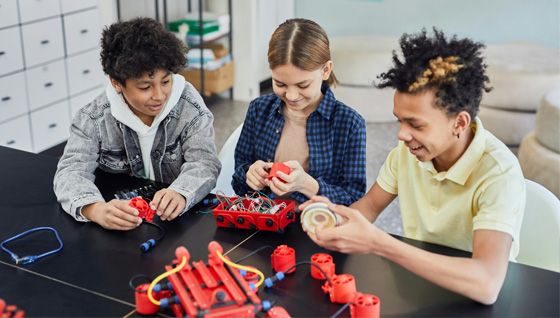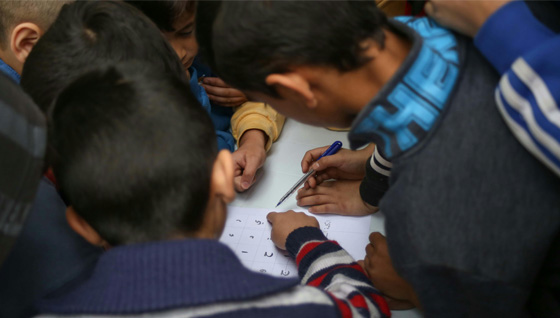Problem-Solving Activities for Kids
4 min read
Last Modified 18 August 2025 First Added 18 August 2025

Young minds are naturally curious, making it the perfect opportunity to lay the groundwork for critical thinking and creativity. Problem-solving is not just a cognitive exercise; it’s a gateway to igniting imagination and ingenuity. Engaging children in activities that challenge their thinking not only enhances their strategic abilities but also fuels their creative potential. These activities range from board games requiring strategy to hands-on outdoor adventures, inviting exploration and discovery.
Let’s dive into problem-solving activities curated to inspire and stimulate children!
When children engage in board games, they participate in a hands-on learning experience that fosters problem-solving, strategic thinking, and social interaction. Games like Monopoly Junior, with its complex processes, compel kids to plan and make decisions in various scenarios, nurturing their strategic abilities. Playing these games also allows families to spend intentional time together, strengthening relationships and bonding through shared experiences.
In the digital age, coding challenges are an effective way to develop problem-solving skills among children, introducing them to an innovative realm where creativity meets logic and critical thinking. Coding platforms allow young minds to create interactive stories, games, and animations, offering a practical and enjoyable learning experience. Check out our range of STEM toys for more inspiration.

Introducing outdoor adventures to kids is a fantastic way to combine play with problem-solving and creative thinking. Building a shelter with natural materials or tackling an obstacle course enhances their strategic thinking and instils resilience and ingenuity. Scavenger hunts are another engaging and effective way to strengthen problem-solving skills in children. This physical activity demands logical thinking as kids search for items or clues strategically placed around a given location. Riddles can be integrated as clues to increase the challenge, adding a layer of critical thinking.
Role-playing scenarios enhance children’s social problem-solving skills and empathy. This dynamic learning strategy helps children prepare for potential social conflicts by improving their understanding of others’ perspectives. Engaging in imaginative play means that children act out various social situations, fostering their ability to look beyond their own needs and feelings. This develops empathy and empowers them to confront social challenges effectively in real-world situations.
Check out our range of dress-up costumes to help bring role-playing scenarios to life.
Top tip: Create a pretend scenario for kids, such as being stranded on a desert island. Ask kids to create a survival strategy to explore solutions collaboratively. Kids will learn the importance of teamwork by resolving fictional challenges with effective communication and cooperation.
Every day tasks and interactions provide children with ample opportunities to develop problem-solving skills essential for everyday life. By engaging kids in real-life scenarios and challenges, they learn to apply logical thinking and critical analysis to everyday activities. Family members can also bond through these shared experiences. Integrating fun educational activities into daily routines transforms ordinary moments into powerful learning experiences.
Try:
By making problem-solving tasks a routine, children develop resilience, comfort with tackling obstacles, and effective frustration management. This habitual practice ensures that their problem-solving skills are not confined to any area but can be applied broadly across different situations.
Engaging children in teamwork and collaborative problem-solving activities prepares them for effective interaction and communication in social settings. Puzzles, escape rooms, and construction projects are excellent for nurturing these skills.

As children work together to achieve a common goal, they practice negotiating different ideas and perspectives, which enhances their ability to work as part of a team. By requiring children to work collectively, these team-building activities foster an environment of shared responsibility and goal-oriented communication.
By engaging children in fun activities and games, they develop essential problem-solving skills that equip them to navigate academic and personal challenges with greater adaptability, resourcefulness, and resilience in the real world.
Do you need help finding the perfect toy? Shop by age now to discover fun, educational toys that inspire problem-solving skills and suit your child’s development! Explore more exciting activities for kids.
Read our disclaimers